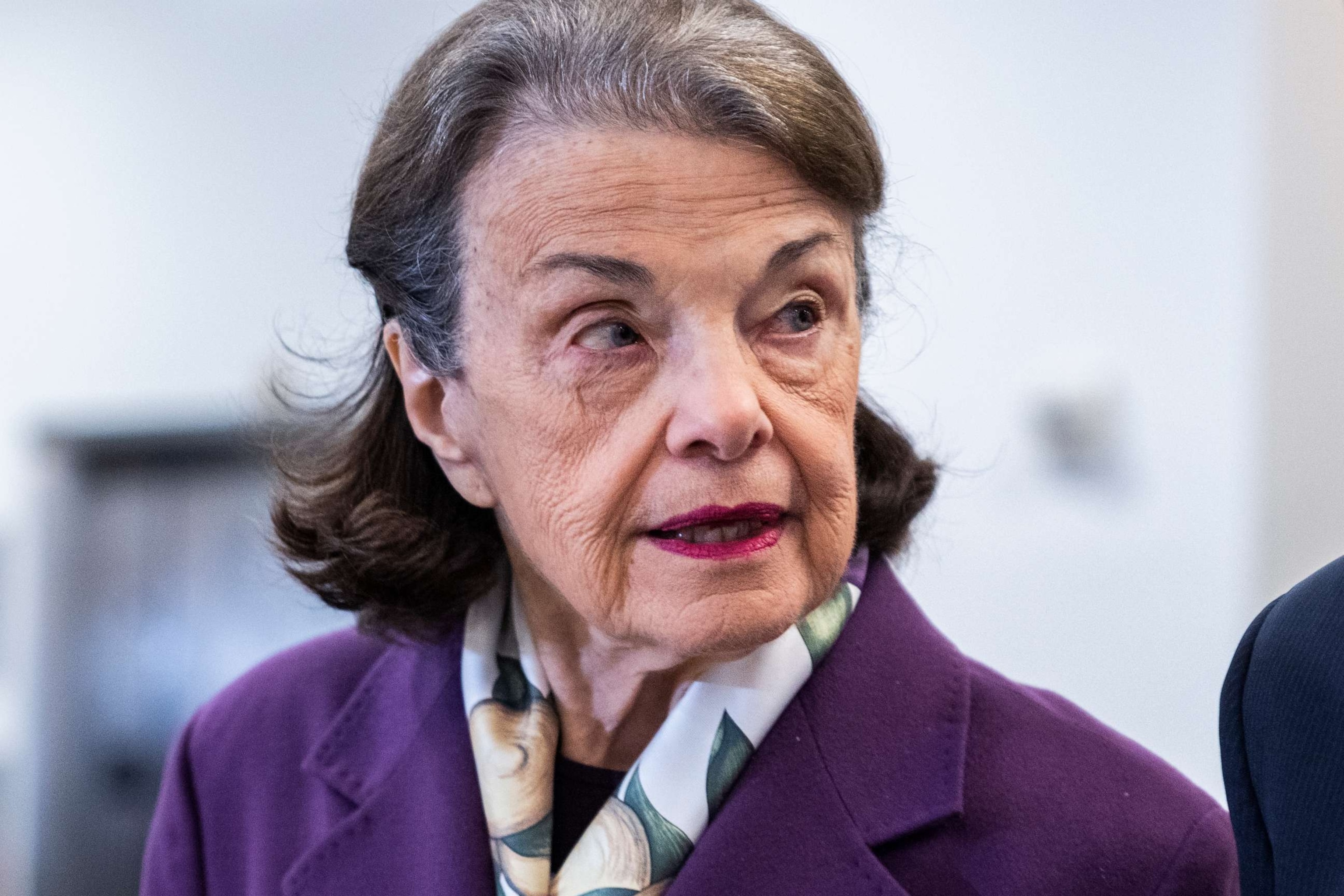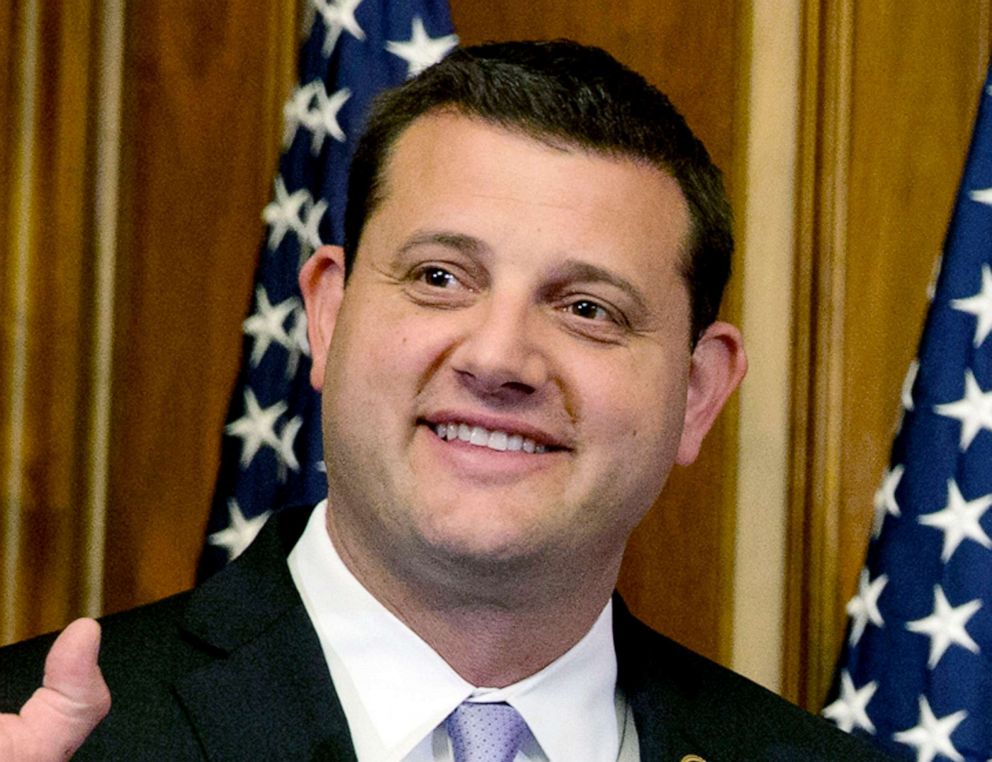New York, California at heart of GOP plan to keep House
Deep-blue New York and California may hold the keys for Republicans to keep their tenuous five-seat majority in the House of Representatives -- but the party faces an uphill battle navigating seemingly hostile terrain in 2024.
Many of the seats Republicans are looking to defend are either in districts President Joe Biden carried in his 2020 campaign or in the kind of suburban districts where the GOP brand has taken a hit in the Trump era. Smelling blood in the water, House Democrats' campaign arm this month released a target list of 33 Republican-held or open seats, 14 of which were in either New York or California -- leaving Republicans strategizing over how to replicate past upsets there.
"Because there are so many seats that are on paper competitive, whoever wins the majority of those seats is gonna probably have control," said California GOP strategist Sal Russo.
The five New York Republicans on Democrats' target list include Reps. Nick LaLota, George Santos, Anthony D'Esposito, Mike Lawler and Marc Molinaro, who represent suburban districts either north or east of New York City, and Rep. Brandon Williams, who holds an upstate seat. The California lawmakers being targeted are Reps. Kevin Kiley, John Duarte, David Valadao, Mike Garcia, Young Kim, Ken Calvert and Michelle Steel, most of whom represent seats in the Central Valley or near Los Angeles.
Democrats are also defending an open seat being vacated by Rep. Katie Porter, who is running for the Senate seat being vacated by Sen. Dianne Feinstein.

The Democrats' list includes more than enough seats to decide House control and comprises many of the candidates who played instrumental roles in narrowly flipping control of the lower chamber amid a disappointing midterm cycle for Republicans.
"The DCCC is prepared to recruit exciting and battle-ready candidates in these key districts and ensure voters see the clear contrast between Democrats’ track record of delivering for the middle class, and Republicans’ radical agenda that puts Americans’ pocketbooks, communities, and livelihoods at risk," Democratic Congressional Campaign Committee Chair Rep. Suzan DelBene said in a statement noting that "just 6,675 votes separated Democrats’ historically strong midterm performance from the majority last November."
GOP operatives in both states dismissed Democrats' bullishness, saying it was too early to sound Republicans' death knell. Republicans underscored the biographic and racial diversity of the lawmakers running for reelection along with the lawmakers' strong fundraising, buoyed by impressive first quarter hauls and expected hefty outside support.
Strategists also said the incumbents have formulated a distinct enough brand to be at least somewhat inoculated from Democratic attempts to tie them to former President Donald Trump, even if he is the GOP presidential nominee in 2024. Operatives cited to lawmakers like Valadao -- who is known for a consistent focus on kitchen table issues like water policy and backed the second effort to impeach Trump -- as a blueprint other Republicans could follow.
"Once you get in there, you get to become an individual more than just an 'R.' And that's the key to staying in office, is to get your personality out there, let people know you as who you are and not as just a so-called Republican fill-in-the-blank candidate," said William O'Reilly, a former staffer on Lawler's successful 2022 bid to flip a suburban House district.

Other Republicans, though, are already wringing their hands over the impact the presidential race will have on their defensive priorities -- particularly if Trump tops the ticket.
Rob Stutzman, a California GOP strategist, said the House races are already set to be "a huge grind" even though some Republicans in the state flipped Democratic seats in 2020, the last time Trump was on the ballot.
"If Trump's the Republican nominee, then Republicans in swing states and California have a big problem. No question about it," he said.
And no amount of branding knowhow is expected to dissuade Democrats from deploying an onslaught of attacks.
House Majority PAC, the main super PAC dedicated to electing Democrats to the chamber, has rolled out a $45 million fund for New York and a $35 million fund for California to ramp up advertising, grassroots organizing and voter registration efforts.
A source familiar with the New York Republican Party's thinking predicted Democrats will throw "everything they can" at the state, warning, "The $45 million is probably a starting point."
That blitzkrieg is forcing a shift in strategy for the state GOP, with party leaders urging Republicans to look beyond candidates' unique brands and allocate resources as effectively a team sport. New York and California are both hosting Senate races that ordinarily would be uphill climbs, particularly in presidential years. But given the high stakes of the House races, Republicans suggested they'll virtually cede the Senate contests and do just enough to ensure they don't get blown out.
"You always want to keep what you have," said the source familiar with the New York GOP's thinking. "Like with anything, the priorities are going to be on the most winnable races."
New York Republicans for years have dreamed of unseating Democratic Sen. Kirsten Gillibrand, and after a surprisingly narrow loss by former Rep. Lee Zeldin to Gov. Kathy Hochul, also a Democrat, last year, speculation abounded that the GOP would make a concerted effort in the 2024 Senate race.
However, it now appears that the priority is having someone face her who can simply tamp down her margin of victory, with the focus instead on finding a candidate who can replicate Zeldin's coattails to lift up down-ballot candidates.
"It's hard to run a party if you let people just run unscathed," New York GOP strategist Tom Doherty said. "You're gonna go from president, which is not going to be good in New York, and you're gonna then go to Senate and then Congress. And so, you want to at least slow the momentum down a little bit so that it doesn't adversely affect the congressional races because they are the most important."
"We're going to look at the seat. We're going to take it seriously. But in the final push, whatever limited resources you're dealing with are gonna go to places that are going to be more competitive," added the source familiar with the state party's thinking.
GOP officials also appear to be discerning among the House seats, with a new fundraising vehicle set up to send money to several House Republicans in New York -- except Santos, who is plagued by scandals and investigations.

And in California, where an all-party jungle primary could bar a Republican from even reaching the general Senate election, the state GOP is hinting that without a self-funder to try to replace the retiring Feinstein, its focus will fall on the House races.
"I wish I had unlimited amounts of resources. But we have to look at the places where we have the best opportunity to pick up seats, to protect what we need to protect, and each cycle we have to make those types of tough decisions," said California GOP Chair Jessica Millan Patterson.
Strategists praised those tactics but worried they wouldn't be enough to wipe away the impact of a GOP brand tied so closely to Trump -- and that some seats may just be off the table for good.
"People are voting based off of the national dynamic," said California GOP strategist and Trump critic Mike Madrid. "Smart tactics, but very rarely do smart tactics outmaneuver bad strategy."
"I don't anticipate we're going back to the old ways of Orange County, where I think in those days, a Republican in Orange County's toughest race was probably their primary against one another," Randall Avila, executive director of the Republican Party of Orange County, said of the leftward shift of what was once a Republican stronghold in California. "Now, we're competitive."




